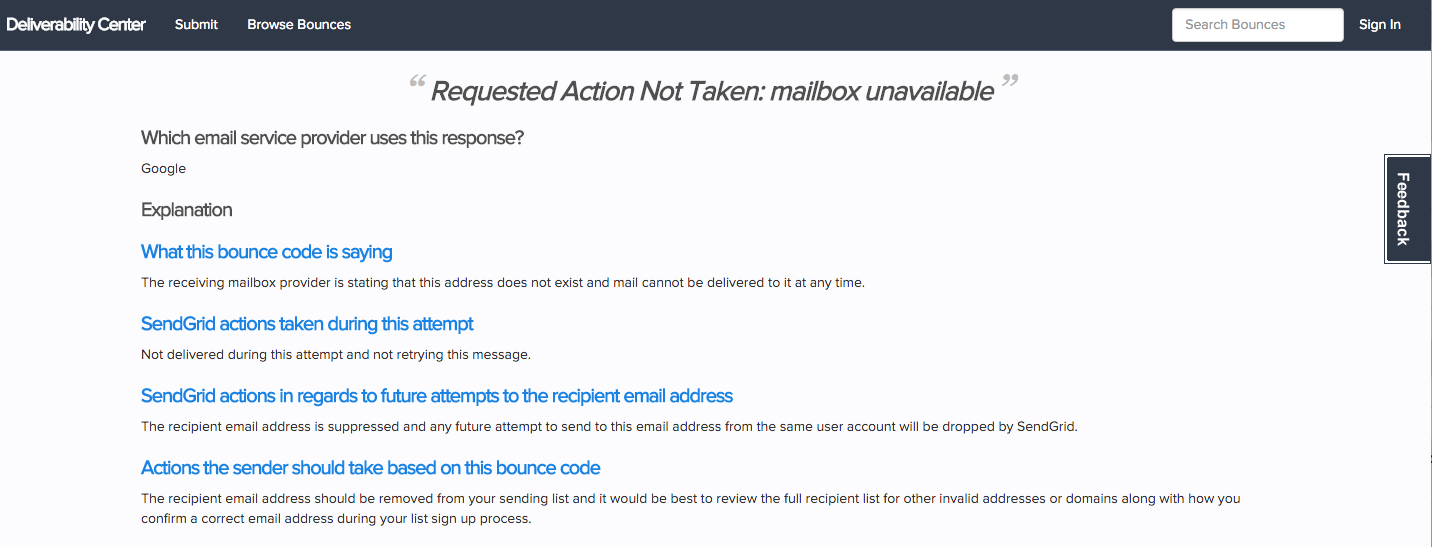To be fair, I’m sure most people would argue that any article on bounce codes (aka SMTP response codes) should be titled “what bounce codes are NOT telling you.” We know that these can at best be cryptic or, most often, very misleading. Most commonly we see codes that say “mailbox unavailable” that should really say “this mailbox doesn’t exist, so don’t send messages to it anymore.”
Knowing that this clarity is lacking in the bounce code world, our Delivery Team wanted to add some assistance in interpreting what a bounce code is
trying to tell you.
SendGrid’s Bounce Code Resource
In our
2022 Email Deliverability Guide, we have always logged some of our more common bounce codes we see with most of our senders. We recently did a large update to clean out some of the outdated bounce codes and to include some of the more relevant ones we thought our users would like to know more about. We wanted to allow users to search for the code they were researching or be able to go to “
Browse Codes” and look through a list of these by mailbox provider along with ones that are internal to SendGrid.

Note that you will only see SendGrid codes if you are a current customer. Also if you are a customer, you’ll learn about the sections of each bounce code “story” that detail what SendGrid will do with the message that saw this response code as well as what we do in terms of any attempts to send to the same email address again in the future.
Here is an example of what you’d find when you search for bounce code 811:

We know that these response codes are in fact an attempt for mailbox providers to communicate with the sender and let them know what is happening with their attempts to engage with recipients. We hope this update helps everyone translate the conversation a bit more. Enjoy!
If you’re interested in more delivery guidance in addition to the Deliverability Center, contact our Email Delivery Team for a consultation.

